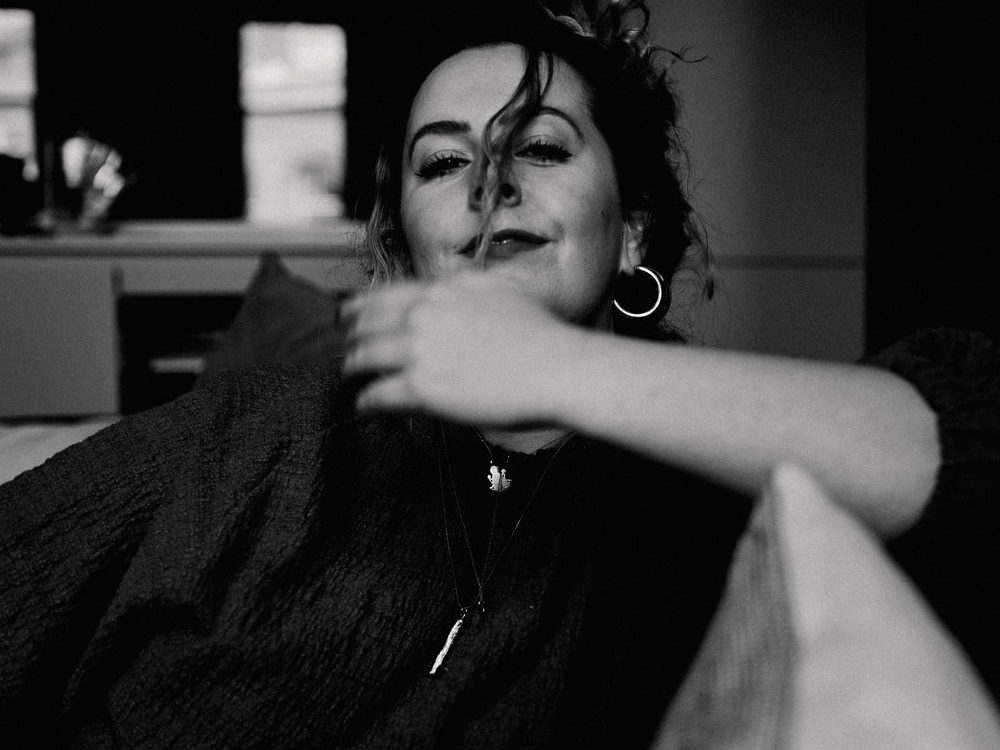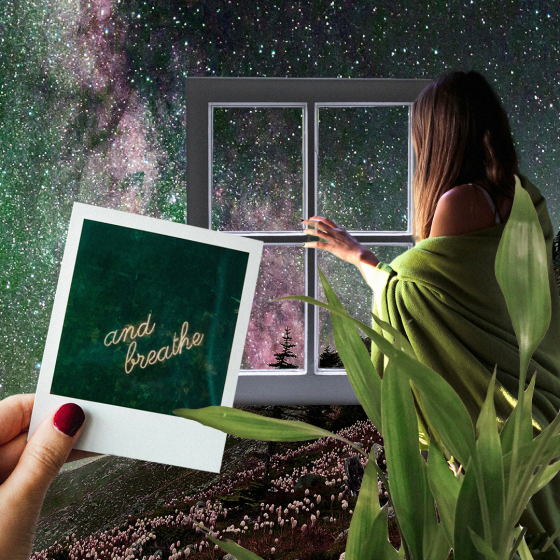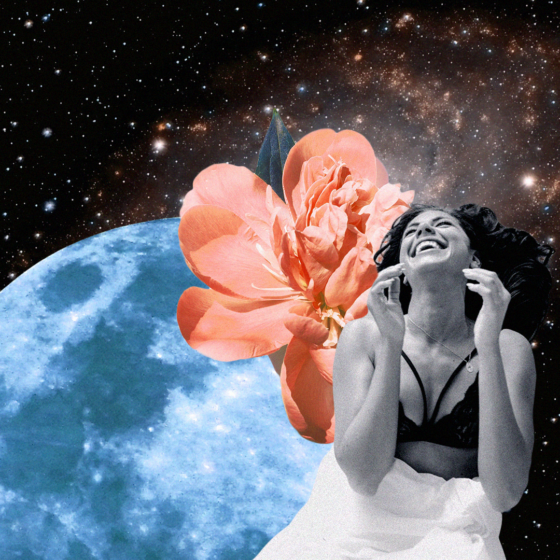Laura Jane Williams is one of those multi-hyphenate talents who is good at basically everything. Author, journalist, scriptwriter, speaker and teacher, her debut fiction novel ‘Our Stop’ came out in paperback this week. So how does one go from not wanting to write romantic fiction to creating a wildly successful romance that topped the iTunes #1 bestseller list and has received numerous glowing accolades? We had the pleasure of interviewing her on love, writing and going ‘balls to the wall in the adventure of your own life.’ Let’s dive in…
So Laura, anyone who follows you on Instagram will know that you have intentionally chosen not be in a relationship and that you’re going through the adoption process as an independent parent. Did you find people around you were surprised that you had written a love story?
Before a book comes out, you print some proof copies that haven’t been totally corrected and set and bound – like early copies. And they go to journalists and production companies hoping you might get quotes or coverage. In those early copies I had a spare page, so my editor invited me to write a note to anybody that was going to read it. In that note I explained that after writing my first draft, my agent had emailed me and said Laura, for a rom com, it isn’t romantic and so it’s not funny. And I had these central characters that were connected but the wider world I had created was very hostile and cynical. Everybody’s friend was cheating or an asshole, so it made for this really blue world that I thought was a true reflection of how we live. And actually, I don’t think it is.
I think you can have been hurt and upset and unsure whilst still holding onto this tenant of hope inside you. I think the thing that draws all my writing together – my fiction, my non-fiction, my journalism, my screenwriting, is the theme of going balls to the wall on the adventure of your own life. So in order for my characters to go balls to the wall on the adventure of their lives, they needed a world that was a little bit more hopeful. It takes great strength to stay hopeful.
So certainly the first draft was a less entertaining read! Going through and giving everyone that cheated a different view or a different story, being a bit kinder, it actually rewired my own brain – it showed me that what you focus on expands your thinking. So whilst I had focused on shitty relationships, which is what I had seen in my own real life, being forced to look for good, I started to see the good in my own life. It was a transformative process. And one that gets me all the more excited for the genre. It takes great courage to be hopeful. Cynicism isn’t a way of life, anybody can be cynical. But cynicism is boring.
So it’s made you more of a romantic?
Yeah, like look at that really nice thing my dad did for my mum, just seeing the best in people and situations. And that doesn’t mean turning a blind eye to the bad, but just recognising that genuinely good, healthy relationships and emotionally healthy love does exist and thrive. And that is exciting.
Historically the narrative in rom com has been a woman being swept off her feet. Or even Andrew Lincoln in Love Actually where once upon a time him standing on Keira Knightley’s doorstep with the cards and secretly filming her was the most romantic thing ever and now fucking hell, that is creepy as shit! You have no right to do that! That just doesn’t cut it anymore. I really wanted to write about emotionally healthy, reciprocal love. And there are lots of examples of that.
Speaking of going ‘balls to the wall on the adventure of your own life’…! One of the things I really enjoyed about reading your novel was picking out the Laura Jane-isms scattered throughout the book that we all recognise from your Instagram and your non-fiction. ‘Living your life on purpose’, ‘Put yourself in the way of beauty’, ‘None of us is fucking up like we think we are’. All words that you live by. Obviously you’ve written a lot of non-fiction and instructional prose in the past – did you want to retain an element of teaching even in your fiction?
It’s funny, the things that have informed my experience as a teacher, a woman, an intersectional feminist, a person who one day hopes to be a parent…it’s all been formed by art. I have made sense of who I am through storytelling. Whether that is a non-fiction Brené Brown special on Netflix or the way Shonda Rhimes explores the facets of being a woman and the facets of love (especially in Grey’s Anatomy). So I feel less inclined to say that what I’ve done is take real life lessons and put them into fiction, it’s more like I’ve used fiction to explore humanness and love, and if any lessons have come out of that, then it’s because of the freedom that making things up gives you.
Let’s talk about your characters. I love how they’re not these magical, squeaky clean stereotypes. They get PMS on the night of the big party, they tweeze their chin hairs! But more than that, they vocalise their thought processes. They’re not perfect – they still feel jealous and frustrated and angry, but they talk through it – for example, ‘Nadia hated that she’d been reduced to making another woman the competition and thinking bad thoughts about her’. Was it important for you to write your characters like that?
Yeah, for sure. Any emotional responsibility the characters have is the level I hold for myself. Were it me and the object of my affection were leaning towards another woman, I would do my best to fight my instincts not to blame the other woman. So I want my characters to do the same. This is contemporary fiction and the experience, industry and objectives are the same as mine – so they’re going to think like me! I’m not writing about a 17th century male monarch from northern England – this is very close to me.
The storyline with Nadia’s two best friends, Emma and Gaby, and how they fall in love, is very nuanced and subtle. So often we simply get the token male ‘gay best friend’ and that’s how writers tick that box. It feels outdated and limiting. With Emma and Gaby, they were finding themselves, they were discovering their sexuality and it wasn’t written for the male gaze. It’s refreshing to read a more accurate portrayal of a non-binary relationship. How can writers steer away from cliché and tokenism?
I definitely felt like I had to be really engaged with the process. Especially with a first draft, you want to hit your target for the day and so suddenly you need to come up with a character and she’s white and called Elizabeth and works in marketing. But then you go, I don’t know anyone like that! Who do I know in my life? Even referencing the fact that Nadia lives on her own but it was a flat bought for her by her parents – those are things that we must address. How does this character have a one bed flat in London? Because somebody bought it for her! Daniel is a bit older and has a flatmate because he’s still saving for a deposit. It’s only through the death of his father that he can afford to get on the property ladder. It’s not taking things for granted and making sure what’s on the page is real life. I don’t know anyone on the property ladder in London who didn’t get help. So that’s all got to be in the book.
I want to ask you about the consent storyline. Daniel challenges his flatmate Lorenzo when he brings home a girl who is clearly too drunk to consent to sex. It was one of the clearest, most open consent scenarios I’ve come across. In particular, when Daniel says, ‘She doesn’t need to say no for it not to be a yes.’ What an incredibly powerful line. Did you know from the beginning that consent was an issue you wanted to cover in the novel?
That came up as I was writing it. It just felt, again, like a thing that has or could happen. I’ve certainly gone home with people when I’ve been quite drunk and that doesn’t mean that I myself had non-consensual sex, but you put your character in that situation, bearing witness to a drunk woman coming home with his housemate. And then your imagination goes, well what if she was three Bacardi and cokes deeper than I was when I went home with that guy that time? What does that look like?
Lorenzo didn’t care. And I wanted Daniel to be in the position of thinking, it’s none of my business, they’ve slept together before, she’s a grown woman, he’s my friend… But hold on, the conversation around responsibility has really come to the fore. Men have to hold their counterparts responsible – and I wondered what that would look like. What does that look like when a guy says to his mate, I think you’re crossing the line? That was really interesting for me to explore.
It was so powerful that the incident changed their friendship irreversibly and they never really came back from it.
I wanted to show that you have this new information – it’s not enough to go, I know your friend is a dickhead but you’re not, so that’s OK. We are the company that we keep, so if your friend is a dickhead, you’re a dickhead! And Daniel has done too much work on himself to be a dickhead! I thought that was really important. I’m not saying Daniel was born and raised this way – this could be a new level of consciousness for him, like it is for so many blokes right now, but it was really important for me to demonstrate that yes, we are the company we keep.
Compare Lorenzo to Romeo who is so tender-hearted and naive and silly, and you go, it’s really cool that Daniel would be attracted to that energy. With Lorenzo, he could have turned the other way, but actually that’s not how we live anymore. And all for the better.
It’s such an important lesson. I know I definitely would have loved reading your book when I was a teenager and trying to navigate dating and self worth – I think it would have given me something to aspire to in love. Did you have the next generation in mind when you were writing?
I definitely set out with the intention of subverting the traditional rom com genre – like especially people who have followed the journey on Instagram for a long time have said, ‘It’s funny I don’t normally read rom coms’, and neither do I! I’ve written non-fiction, I have a first class honours in creative writing. I always thought I’d be like a Zadie Smith, literati, highbrow fiction type and it never occurred to me to do commercial fiction until this opportunity came up.
And I suddenly realised as I played around that you can use something as a vehicle and totally have your own political agenda behind it. So going back to the Shonda Rhimes thing, you’re tuning into a hospital drama but you’re actually tuning into a show about love. You think you’re getting a rom com with me but actually there is gender politics at play, I subvert stereotypes, there are issues of consent…
I actually had someone from the non-binary community reach out to me saying a particular scene had touched them because they’d never seen it addressed that way in commercial fiction before. I’m very eager to reflect my own life and my own experiences within the context of a rom com.
And I love rom coms! I watch a lot – The Back Up Plan with Jennifer Lopez – one of the best movies going! I rewatch it again and again. So it’s really fun to unpick and think, OK in a patriarchal based rom com I would go left, so what happens if I go right? As a hardened feminist I can still love romance and the chase, it’s just writing that story in a way that feels very true to life, not necessarily for teens or Gen Z so that anyone across the board can think, I need to fill up my own cup before I couple up. And that it’s OK to hope.
I think especially with the state of the word right now, a level of escapism is definitely needed. It felt good for me to write it, it was escapism for me. So I hope that’s what people reading it get too.
That absolutely came across for me! It’s tough, there can be a feeling of people finger-pointing at Gen Z and saying flirting is dead and people don’t meet in real life anymore. Do you think it’s a generational shift like ones we have experienced before or do you think love and dating and relationships have intrinsically changed over the last few years?
Connection is always going to be at the heart of the human experience in the way that it is expressed. Personally, as someone who is actively not dating, who is actively pursuing independent parenthood, I am pleased at the shift in dialogue. I’m rewatching Mad Men right now and the thing that is jumping out at me is because the men have the earning power, they have the power. And I truly believe that financial freedom for all genders means what we look for in a relationship has changed and altered.
Millennials might have born the brunt of changes – we make up our own hours, we have these portfolio careers, we were the first generation to have online dating, we realise the choice is out there… For me, in my own life, my standards are so much higher than what they were. Because when you’re not just looking for somebody to go halves on the mortgage, if you take the money out of it, you’re looking for a person that’s really going to show up to your life. And as the #metoo movement has demonstrated there’s a lot of that masculinity which is very toxic – and that is dying out.
I know you’re a keen Love Island fan and there are bits of language associated with that (‘My type on paper’ etc) which are hilarious but feel very much like they’re reinforcing stereotypes and unhelpful narratives. You talk about ‘love language’ a lot in Our Stop – do you feel like we are developing a new, more current way to talk about love and relationships?
I saw something On Twitter the other week that said wouldn’t it have been amazing if Amber and Ovie could have won in a platonic couple proving that it’s not about nuclear, hetero-normative, man-woman based chemistry that trumps all. Wouldn’t it be beautiful if platonic love could win? And I think that’s a really important thing. That’s why I created the romance between Romeo and Daniel – they have this fledgling friendship and are learning how to foster that in a way that was very tender and very real to me and in a way that I would hope for them.
A lot of guys maybe aren’t used to fostering relationships in a way outside of getting smashed down the pub and watching football. So yeah, I hope the language around love is changing. And that we think about all different types of love. I’m very keen to demonstrate LGBTQ themes in the book. When I talk about people having families, I don’t just reference a woman getting pregnant and having a baby, I reference adoptions and surrogacy and people that can’t have children – because that’s real life.
Ok, let’s talk about the ending! Was the happy ending a given?
Yes… because it’s a rom com! But after I had written the character of Eddie, I had a couple of days where I was like, what if she almost missed the love of her life because she got caught up in this thing in the newspaper but actually it was all leading towards this chance encounter with Eddie and Eddie is the one she needs to be with!? But I couldn’t do it to Daniel!
What is really exciting for me is that considering I thought I would do literary fiction and pass comment on ‘The Great British Novel’ the way I talk about my books now is that I write stories that you take on holiday with you and you don’t bring them back. This doesn’t have to live on your bookshelf forever, it’s just a great story contributing to a wider discussion around what romance looks like these days. It’s been really interesting, a rom com has a foregone conclusion. So it’s about the 80,000 words to get to that conclusion. And I mean that’s why I watch The Back Up Plan or The Notebook or whatever, you know how it’s going to end. But that’s the point.
At the moment we’re having a bit of a moment with TV – Killing Eve, Fleabag, Sex Education. As someone who has written for screen as well as the page, do you feel like commercial literature has a longer way to go when it comes to creating multidimensional female characters?
I think any artistic medium is overwhelmingly staffed by the white middle class – you can’t set out to write something for an audience so much as you have to set out to be bought by a publishing house and create something that an editor will advocate for and get their wider team/house on board with. It’s really about finding other people who will advocate for your story and your characters. Which is hard if the people buying the work don’t look or sound like the people writing the work. It can be unfairly balanced that way. So I don’t necessarily think in TV or in books, in any art form, that any medium is easier than another, but I certainly appreciate there being an appetite for different voices now because it makes it easier to get a foot in the door if you want to tell a non-traditional narrative.
Phoebe Waller-Bridge has talked about how when a woman writes fiction it is often assumed to be autobiographical, much more so than with male writers. Have you found this to be true?
I heard somewhere most fiction is memoir and most memoir is fiction. I totally understand what Waller-Bridge is saying in that just because she’s created this psychopath with unbridled sexual energy doesn’t mean she’s having threesomes… I get that. When she’s in Fleabag talking about a dysfunctional family relationship that’s not because she has one. But I think for me what that means, is when you’re making stuff up, there’s so much more freedom to explore the truth of your own life.
Phoebe had said the worst thing she could possibly imagine was her mum dying. So I believe the emotional reactions to that in Fleabag are very much rooted in autobiography, that Stanislavskian technique of empath to the extreme – you put yourself in that person’s shoes. So I think you can create characters that are totally of your imagination but the emotion must always be real. To write real emotion, you have to access emotion within yourself. Even if it’s an impulse – you haven’t lost your mum but it’s the worst thing you can imagine. Using your own life is the very pillar to creativity.
No one is independent of their own emotions but let’s mix that with imagination and don’t be as boring as to conflate the two. Just let it be the story that it is. I don’t think it’s anyone’s job to relate the story to the author. We create art so that people can see themselves in it.
I know you love London. Was it hard writing about the city having moved away?
Well, I had started it when I was still in London knowing I was leaving. And I think that made it all the more potent. I wanted the secondary love story to be a story of the city. All of the places mentioned – secret cinema, the Wellcome collection, certain bars and walks, they’re all little landmarks of my London. I wrote my London as a way to press it between the pages and remember it for myself. I do love London. She is a majestic and beautiful city in which to fall in love.
‘Our Stop’ is out now in paperback and audio book.









